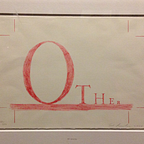Star Wars and the Stories We Keep Coming Back To
A few months ago, I picked Star Wars: The Old Republic, the 2011 MMO, back up after nearly a year without playing. I knew I’d likely put it down after a week or so, I knew I still disliked the grindy combat, I knew the character creation options were still frustratingly limited, I knew the writing was often uneven at best — I knew that, in many ways, it is not a good game. Or, at the very least, not one that checks enough of my personal boxes. Sure, it has a (somewhat) narrative focus, a few interesting ideas, and some other nice things, but none of it’s enough. Plus, I’ve had the game nearly since it released — I’ve already played through most of the parts that interested me, long ago.
Obviously, the answer to why I keep coming back, to why I’ve forked over a couple hundred dollars in subscription fees and far more than that in hours, is that it’s Star Wars. Do I like being a bounty hunter? A Sith? A smuggler? An imperial agent, this game’s unique take on an array of spy archetypes? Absolutely, and sometimes, I even enjoy being a Jedi, unbearably sanctimonious as they often can be. All of those things, contextualized in the Star Wars universe, fundamentally fit into a specially sectioned off place in my heart. Star Wars and its trappings have me in their clutches, and apparently that’s enough to drag me back even when I’d rather be going elsewhere. Likewise, when I talk to my friends, those who engage with media more than casually all tend to have soft spots: Stories that mean something powerful and ineffable to them, in a way that’s difficult to shake.
I’m not really here to talk about the reasons I’m drawn to Star Wars. What I am curious about, however, is the phenomenon my continued gravity around it represents: If, even as my tastes change, as I grow older and learn new things and move through different phases of my life, I can still always find something meaningful in a series I first came to as a child, what does that signify? I don’t have any hard and fast answers, and of course I can only authoritatively speak for myself, but there are clues, born from the contemporary infrastructure of fandom and mass creative endeavor.
Though mass media in some form or another has been around for a while, it has always been served by distinct leaps: Mass literacy, mass television ownership, mass internet access. Those three combined led to a 21st century in which most people, at least in the United States and other wealthy countries, can access a great deal of creative media very quickly and easily. For me at least, and for a lot of my friends invested in creative mediums, this led to a lot of exposure from a very young age, as everyone and their mother tried to sell us on their particular fictional ecosystem. Eventually, for most of us, something stuck: For me, Star Wars, for other friends, Kingdom Hearts or Harry Potter or Lord of the Rings. And though none of us are fated to love that work or see it the same way forever, it can often be difficult to leave those things behind. Even as we grow older, the proliferation of increasingly diverse mass media intended to appeal to broad audiences often sees to it that we continue to find things to latch onto past childhood. We experience a constant bombardment, one that simultaneously can cause many of us to prioritize immediacy and that attempts to create an adhesiveness that will keep us coming back to sequel after sequel. The tension of popular media, in which it simultaneously has to maintain something of a fundamental core and also has to grow and change with the times, is constantly at work. Often, stories will be retold and reinterpreted, and different people will look at the same body of work with entirely different lenses and opinions on which interpretations are valuable to the canon. Large, interconnected communities of fans form around their interpretations and priorities — I know there are people who would die for Boba Fett or insist the prequels are the best movies in the franchise or want Rey and Kylo Ren to end up together, but I rarely see them and I have little desire to. Lengthy fanworks and discussion threads are born, relationships are formed, and the percolation of ideas continues. For Star Wars and many other pieces of media, their simple size and internal diversity, combined with the size of the communities orbiting them, creates an ecosystem that is in many ways self-sustaining.
I think this is part of what makes these franchises work. The size, the complexity, the internal inconsistencies and the unwieldiness, are to their benefit, rather than detriment. Their continued presence in the lives of fans keeps them fresh, while different iterations serve to please different sets of people while also setting off lively debates that keep people thinking and invested. Unevenness and poor choices are criticized, but that criticism often results in as much attention as it does in loss of sales or frustration.
Is this exploitative, a capitalistic inevitability that forces things into boxes and dooms us to rehash core ideas for decades while fresher stories die on the vine? Is it an expression of the cultural zeitgeist, valuable for historical purposes? An important space for burgeoning writers and other artists to experiment with? Probably all of the above, and probably a lot more. If and when the paradigm does shift yet again, I’m curious what it will bring.
Regardless, when I’m fifty-two years old and Star Wars: Episode 21 is being re-released for full-body immersive VR, and I’m lining up at the door with the 9 to 19 year olds, don’t be surprised.
